Chemotherapy
A medicine that kills cancer cells around the body. It is an anti-cancer drug, often, but not always, given by a drip into your arm.

You can have chemotherapy if:
You have advanced prostate cancer that has been treated with hormone therapy that no longer works. This is called castration-resistant or hormone-resistant prostate cancer.
You may not be able to have chemotherapy if:
Chemotherapy cannot cure your cancer but:

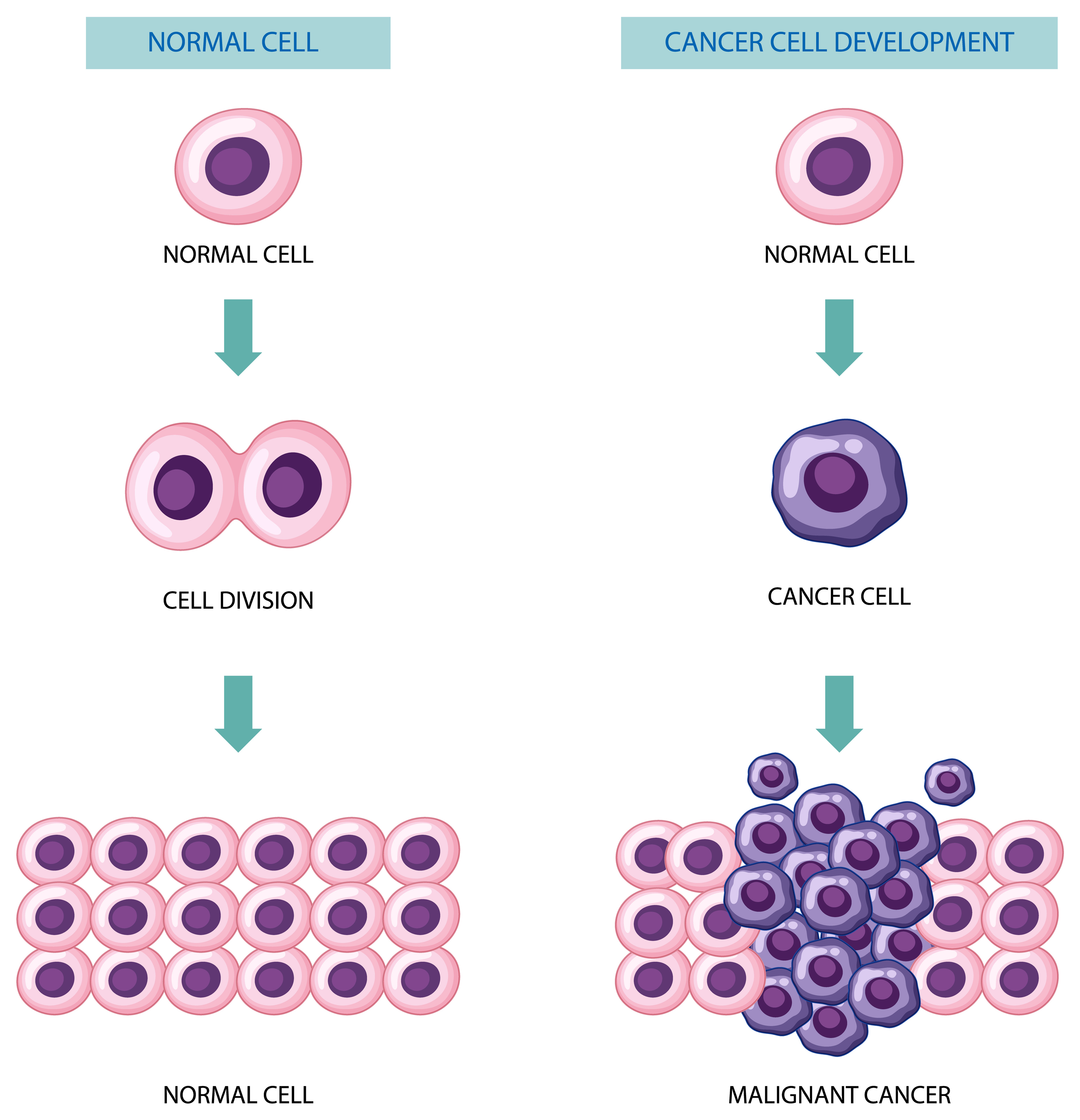
The chemotherapy can also attack fast-growing healthy cells.
What does this mean for me?
The type of prostate cancer.
If you have metastatic prostate cancer and have not had hormone therapy before:
If you have had hormone therapy that no longer works (castration-resistant prostate cancer):
The dose that you get will depend on your:
Length of time between treatments.
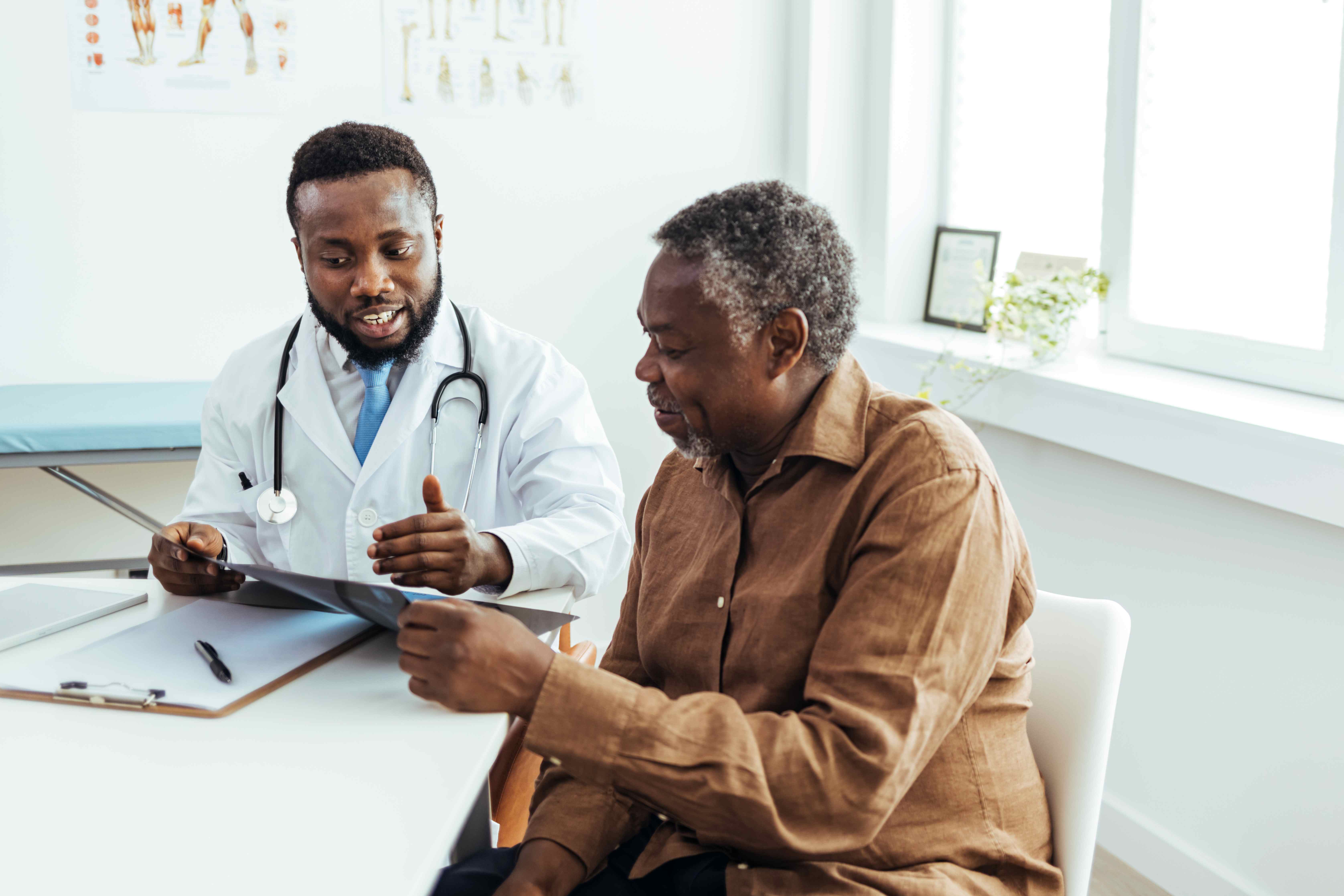
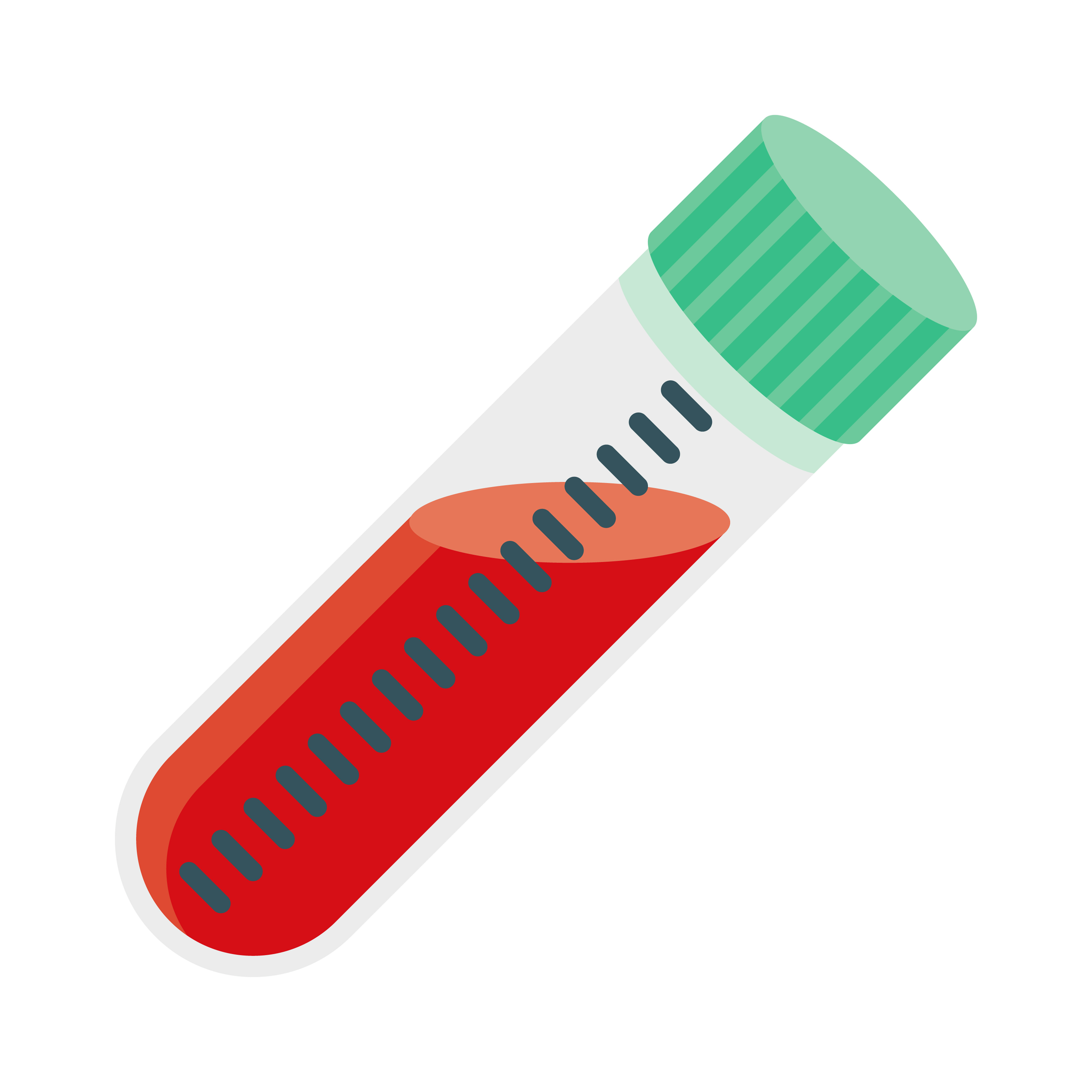
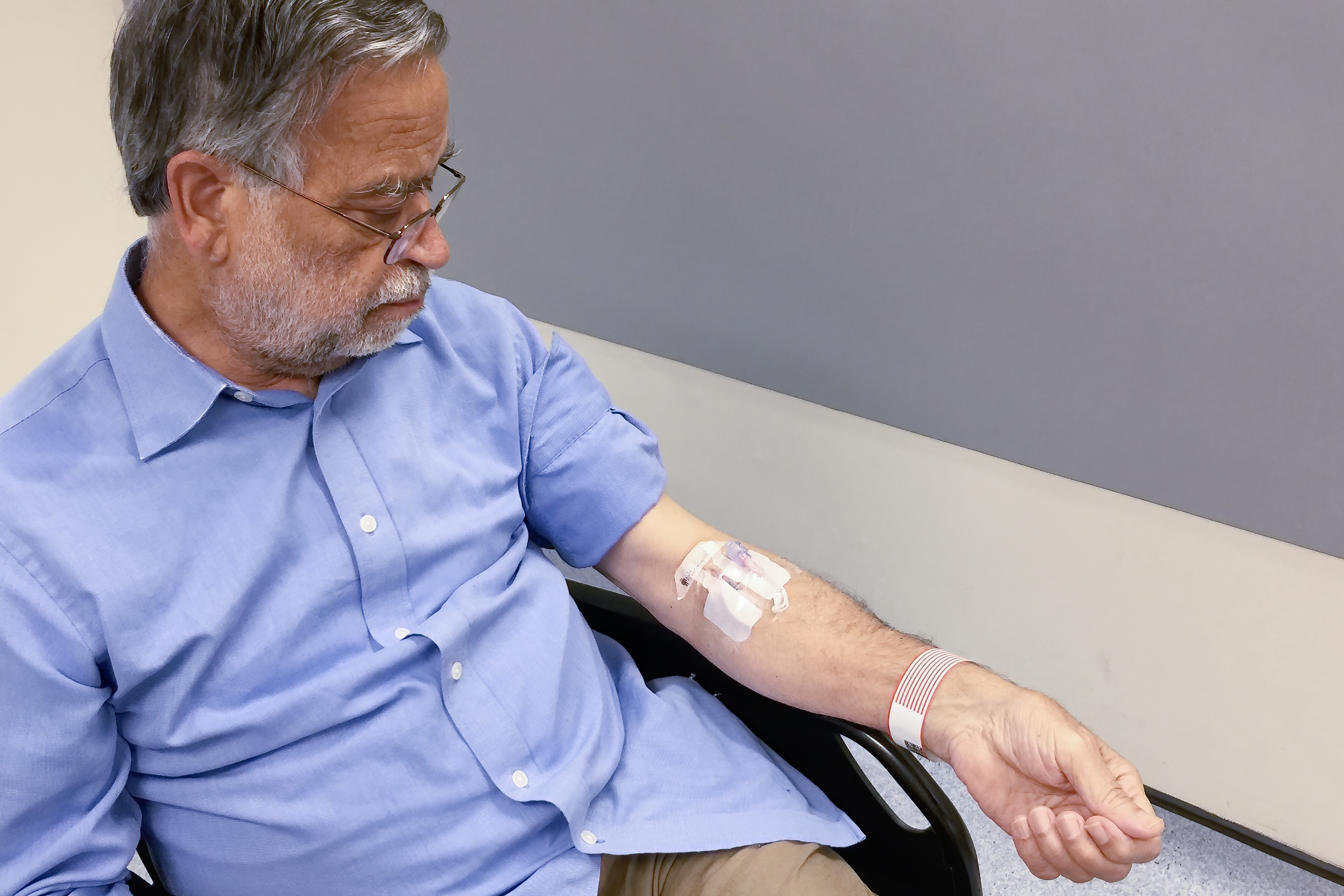
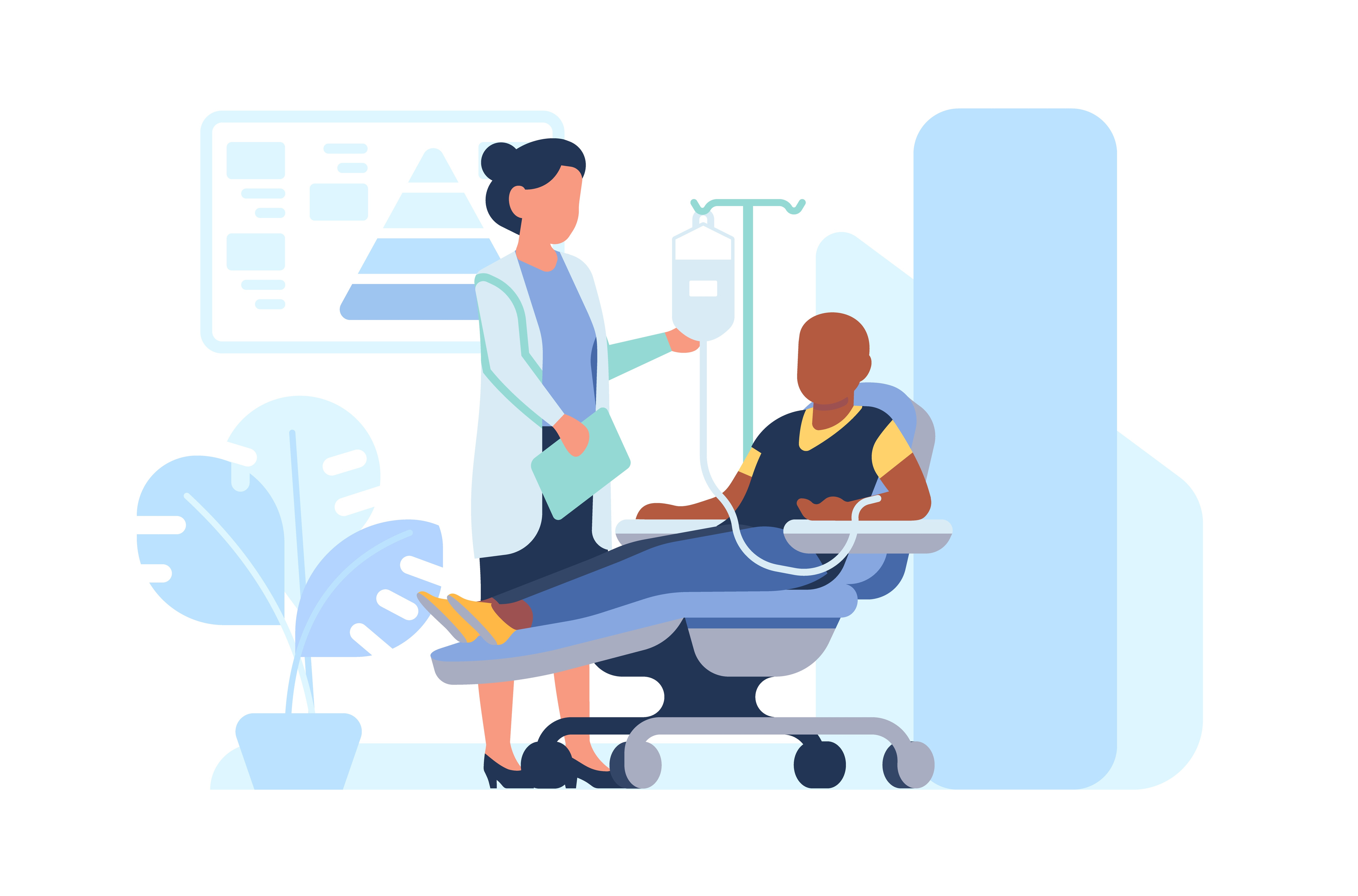
Chemotherapy is usually given with hormone therapy. This happens if you are newly diagnosed with metastatic prostate cancer. Go to our hormone therapy page for more information (the link will open in a new tab).
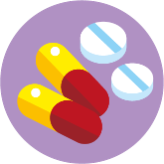
Over-the-counter medicines (e.g., cold remedies, etc).
If you need dental or other treatments, always tell the healthcare professional that you are having chemotherapy. This includes nurses, other doctors, pharmacists or dentists.
You may be advised not to have certain vaccinations while you are having chemotherapy. Talk to your doctor before getting any vaccinations.
You may get side effects with your chemotherapy. These may affect your ability to drive, use tools or machines. If this happens, do not drive or use any tools or machines. Speak to your healthcare team for more information.
Docetaxel and cabazitaxel contain alcohol. Please speak to your healthcare team if you are addicted to alcohol. You may also be advised not to drive after your treatment. This is because the docetaxel can raise your blood alcohol limit.
Our services search tool will allow you to search for hospitals near you that offer chemotherapy (the link will open in a new tab).
Listen to Oncologist Nick quizzing Andy about his experience of having chemotherapy for prostate cancer.
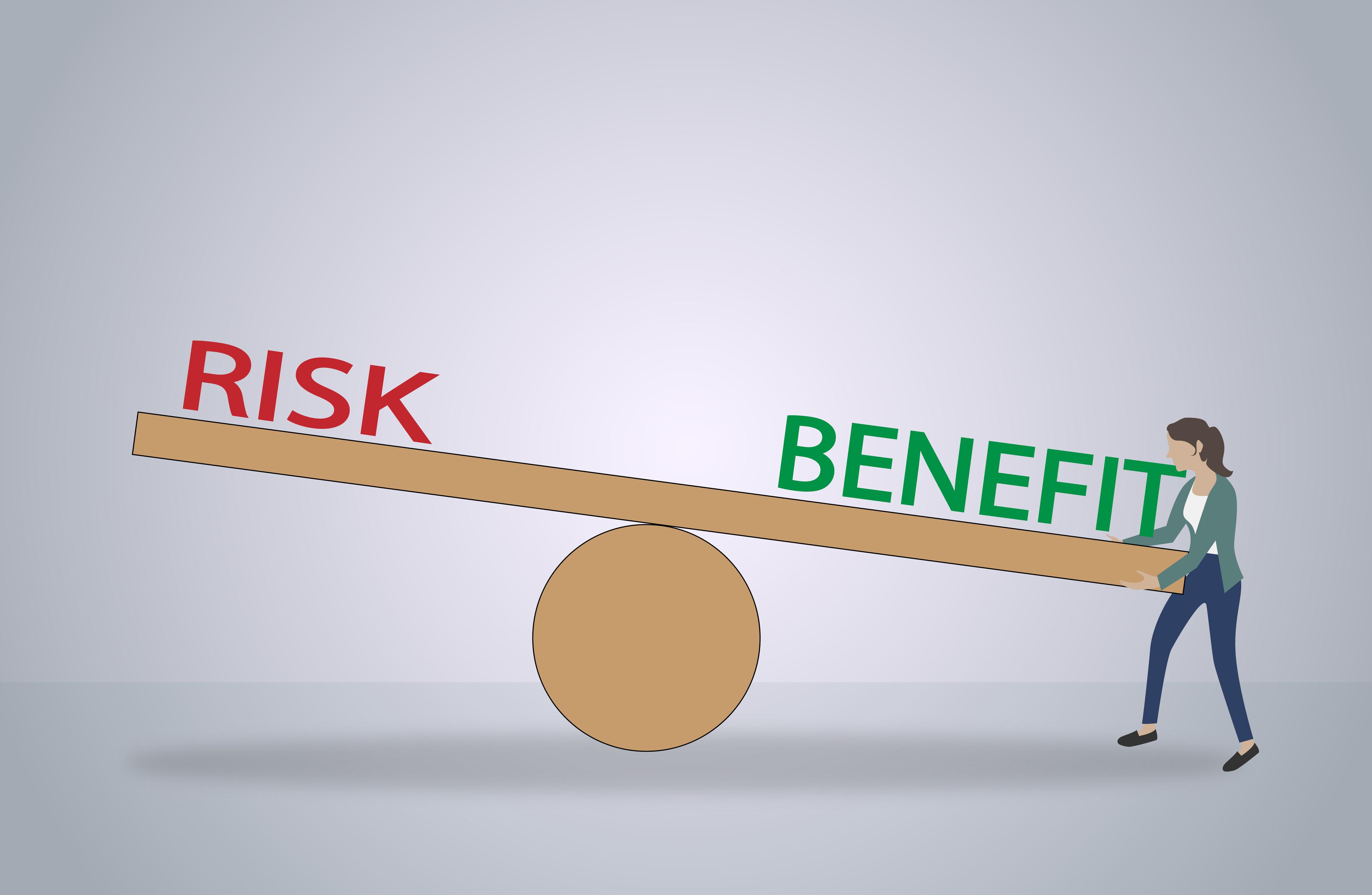
Not everyone will get the same side effects. Your doctor will talk to you about the possible risks and benefits of your chemotherapy.
This may affect more than one in 10 people. You may have the following allergic reactions:
If you have any of these symptoms, please tell a member of the healthcare team straight away.
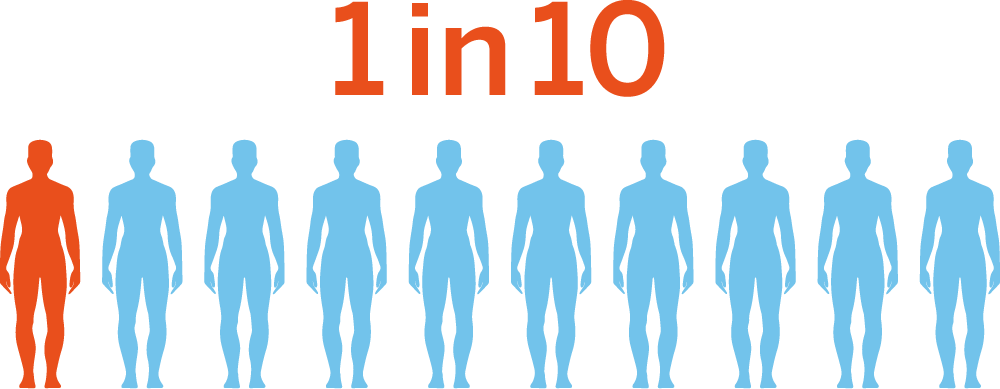

You may also get side effects from the steroids that you are taking. These may include:
For more information, see the patient information leaflet that you will find inside the steroid tablet box.
Not everyone will get the same side effects. Your doctor will talk to you about the possible risks and benefits of your chemotherapy.


You may also get side effects from the steroids that you are taking. These may include:
For more information, see the patient information leaflet that you will find inside the steroid tablet box.
Enjoying activities such as walking or going out to the pub
94 out of 100
Ability to make good connections with others
64 out of 100
Ability to reach sexual arousal, either physically or emotionally
74 out of 100
Knowing who you are and what motivates you
74 out of 100
Feeling good and functioning well in your personal and professional life
83 out of 100
Ability to think clearly, make good decisions, and cope with your emotions
91 out of 100
Feeling of constant physical and/or mental tiredness or weakness
92 out of 100